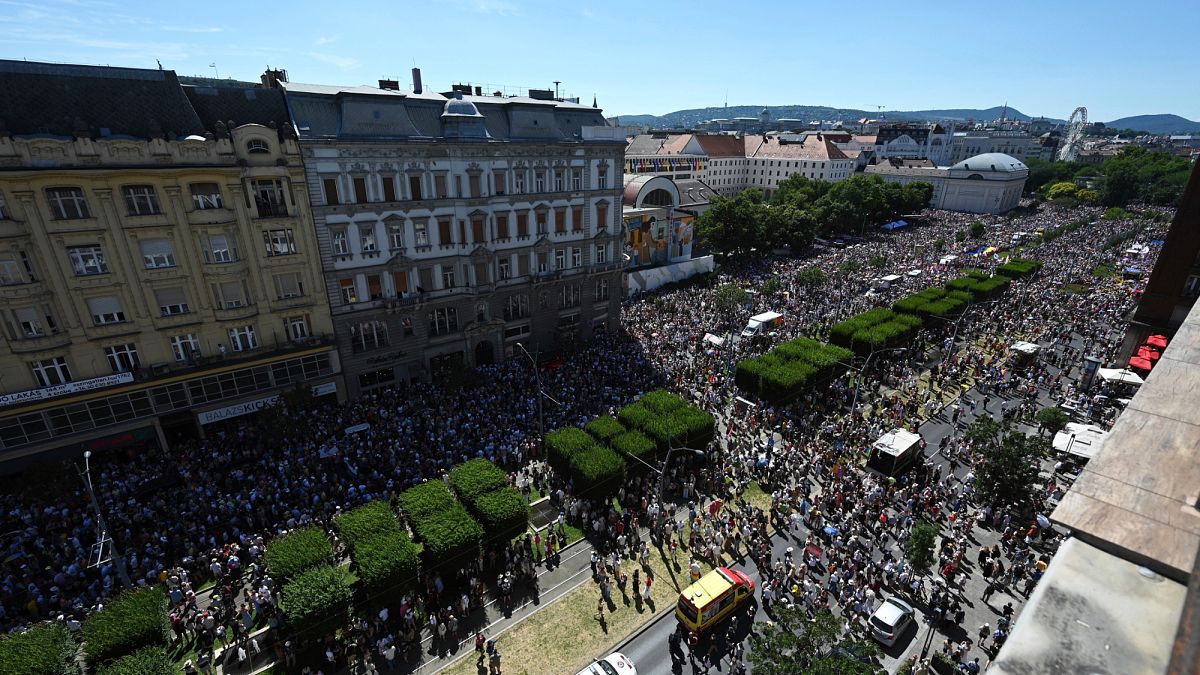

In a remarkable display of unity and courage, Budapest Pride celebrated its 30th anniversary with around 200,000 participants taking to the streets, defying an official ban imposed by the Hungarian government. This year’s event underscored the collective resilience against a backdrop of escalating restrictions on LGBTQ+ rights under Prime Minister Viktor Orbán’s administration. Marchers from across the globe, representing over 30 countries, gathered under the warm July sun, their vibrant rainbow flags serving as poignant symbols of diversity, acceptance, and hope for a more inclusive future.
Budapest, once pioneering as the first capital in Eastern Europe to hold a Pride parade, has seen its annual event evolve into a significant beacon for LGBTQ+ visibility and rights advocacy. The recent crackdown on such expressions by the government is viewed by many as an overreach, but it has also sparked a broader movement of solidarity and defiance, uniting people across various backgrounds and ideologies. Indeed, the parade’s growth in participation and support illustrates a steadfast commitment to the ideals of freedom and equality.
This year’s parade received an additional boost, as a group of influential European figures, including Commissioner Hadja Lahbib and seventy Members of the European Parliament (MEPs), traveled to Budapest. Their presence was not just a symbolic gesture but a tangible statement challenging the government’s decision to ban the Pride march. Although opposition leader Peter Magyar’s absence was noted, the European officials’ attendance highlighted a growing concern over Hungary’s trajectory on human rights issues within the broader European community.
Concurrently, the event’s organizers and participants radiated positivity and resolve. Their approach was not one of confrontation but rather of peaceful persistence, demonstrating that community gatherings could thrive even in the face of stringent restrictions. This peaceful resistance was mirrored elsewhere in the world, where activists continue to fight for their rights despite adversity, as seen with the legal actions planned by East African activists against the Tanzanian government over alleged abuses and repression.
The Budapest parade, therefore, became not only a celebration of love and identity but also a platform for resistance against repression. Participants expressed their messages creatively through art, music, and voice, emphasizing the power of peaceful protest in enacting change. Through raising awareness and challenging unjust policies, their defiance carried a distinct message: that adversity can serve as a catalyst for solidarity and action.
Looking forward, the Pride organizers and participants are hopeful that such collective efforts will initiate meaningful dialogue and inspire policy changes within Hungary and beyond. Despite immediate hurdles, the spirit observed in Budapest serves as a reminder that movements grounded in love and acceptance hold the potential to foster change, encouraging everyone to dream of a world that embraces diversity without fear.
As this year’s Pride celebration passes, the narrative it set forth will continue to resonate, undeterred by boundaries. It exemplifies that while bans may attempt to silence voices, they often, instead, amplify them, galvanizing communities into powerful movements for social justice and human rights. The echoes of Budapest Pride’s harmonized chants remind us all of the enduring power of collective hope and courage.
Source: {link}
